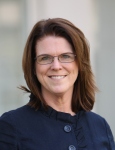| The Master’s Thesis: Overcoming Its Challenges |
![PDF-NOTE: Internet Explorer Users, right click the PDF Icon and choose [save target as] if you are experiencing problems with clicking.](http://rsnonline.org/templates/rsntemplate-smallmasthead/images/pdf_button.png) |
 |
|
Page 1 of 3 Martha L. Finch, Missouri State University
The Master’s Thesis: Practical and Psychological ChallengesIn the department of religious studies at Missouri State University, Master of Arts students have the option of either producing a research portfolio, which includes seminar papers and other written work, or writing a thesis. We counsel those who intend to apply to PhD programs to write a thesis, and currently around twenty of our thirty or so MA students are writing or planning to write theses. In the process of completing a thesis, students develop many of the skills necessary to become professional academics: the student formulates and produces a substantial project that demonstrates the ability to engage and apply the appropriate scholarly literature, to perform original research and analysis, and to articulate findings through writing and revising (often several times). Completing this rigorous process demonstrates both to the student and to potential doctoral programs that the student is able to craft an original project and engage in the sustained research and writing required to materialize that project. Perhaps more difficult than the actual work itself is the psychological test of maintaining one’s focus and effort over the course of the project. The combination of practical and psychological challenges often means that students find it difficult to complete the thesis in a timely manner. On the practical side, our Master’s degree is a two-year program, during which students must complete thirty credit hours. For students writing a thesis, a core of eighteen of those credit hours must be in seminars distributed across four fields (biblical studies, South Asian religions, the history of Judaism and Christianity, and religion in America); six of the remaining credit hours may be dedicated to the thesis. However, virtually all our students complete their coursework in two years and then take at least another year, and typically more, to take exams and especially to write the thesis. In spite of our MA handbook’s recommended length of 80–100 pages, these theses often grow into projects of 150–200+ pages, a length unwieldy for both students and advisors. With the Missouri Coordinating Board of Higher Education expressing concern about statewide degree completion rates, my department recently has implemented strategies intended to streamline our program’s schedule, provide more hands-on advising, and ultimately help students more efficiently complete their theses and degrees. Three initiatives appear rather obvious, in retrospect: 1) Agreeing that we should be more proactive in guiding our advisees to craft thesis projects within the recommended page range (80–100 pages); 2) Reconfiguring "comprehensive exams" as "qualifying exams" and moving them from the end of the student’s tenure in the program (when he or she is also attempting to finish the thesis) to the beginning of the second year; and 3) Requiring a thesis prospectus that includes working titles and abstracts for the overall thesis and its individual chapters, a literature review, and a schedule for completing chapter drafts. A fourth, and perhaps less obvious, strategy has been initiating a biweekly (every other week) writing workshop. This article focuses on the writing workshop, which has been the most recent addition and for me, as its facilitator, the most challenging but ultimately rewarding and successful. |


 Martha L. Finch is an associate professor of North American religious history at Missouri State University. She received her PhD in religious studies from the University of California, Santa Barbara, and is the author of Dissenting Bodies: Corporealities in Early New England (Columbia University Press, 2010) and co-editor of Eating in Eden: Food and American Utopias (University of Nebraska Press, 2006). Finch is currently working on a history of plain dress in North American Protestantism. She also advises more Master’s theses than she can reasonably keep track of.
Martha L. Finch is an associate professor of North American religious history at Missouri State University. She received her PhD in religious studies from the University of California, Santa Barbara, and is the author of Dissenting Bodies: Corporealities in Early New England (Columbia University Press, 2010) and co-editor of Eating in Eden: Food and American Utopias (University of Nebraska Press, 2006). Finch is currently working on a history of plain dress in North American Protestantism. She also advises more Master’s theses than she can reasonably keep track of.